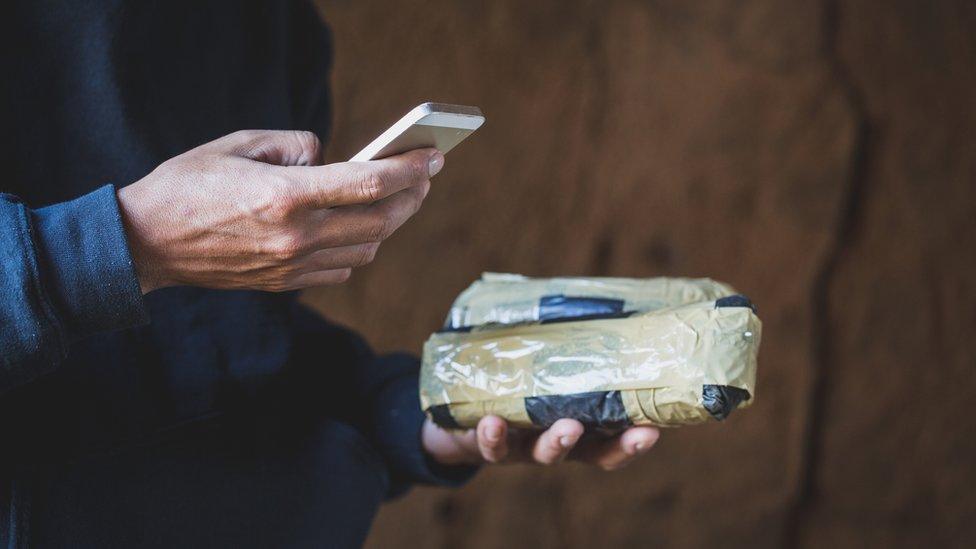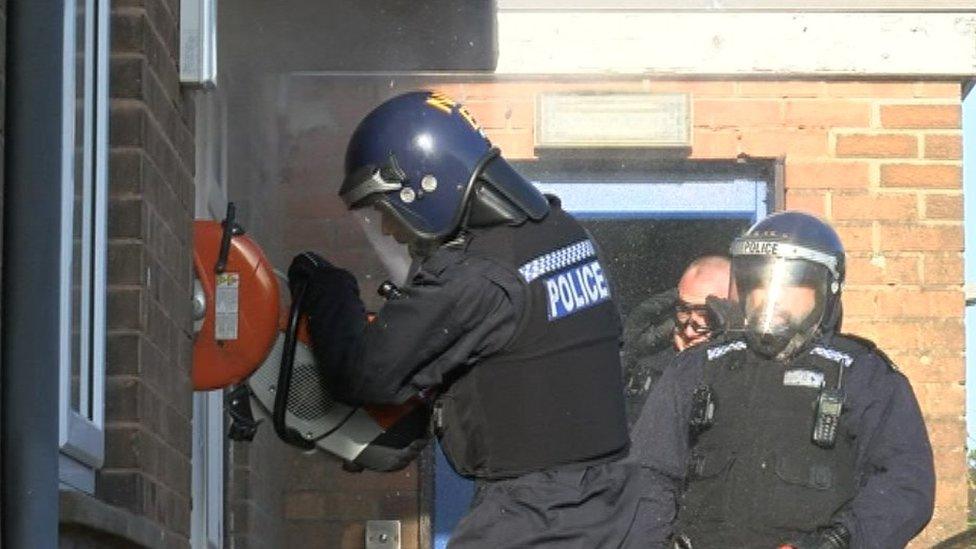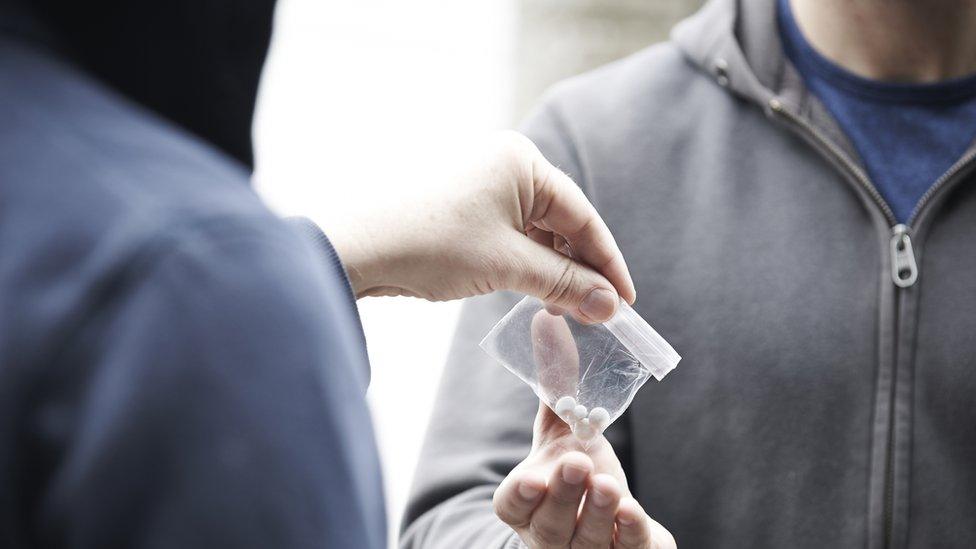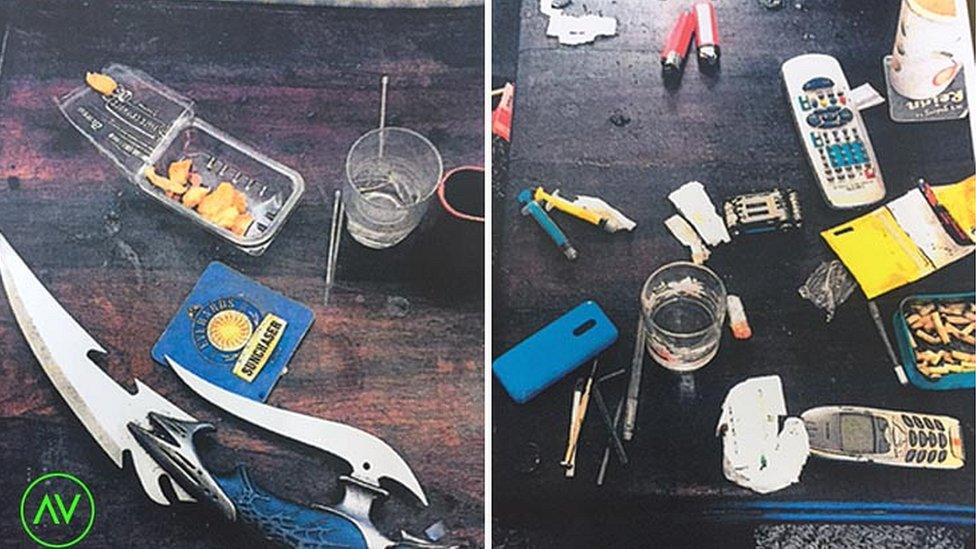County lines: Norfolk and Met police shut down 20 drug networks
- Published

Norfolk Police has been working with the Met Police to target organisers of county lines drug operations
Some 20 county lines drug networks have been closed "permanently" in a joint Norfolk and Met Police operation.
The forces have been working together to break the drugs trading networks between London and Norfolk.
About 500 arrests were made over a year, police said.
Detectives analysed phone records to target the senior gang members based in London controlling the customer phone lines.
The Met estimated 800 to 1,100 lines are live across the country at any time with a third operated from London.
The 20 lines that were shut down have seen 25 people charged and remanded for drug supply offences, with eight of those sentenced in court and jailed for between two years and six years and nine months.

Norfolk Police said more vulnerable people's houses were being used could to store drugs
Det Insp Robin Windsor-Waite worked with the Met on shutting a county line that was sending crack cocaine and heroin into Norfolk.
The line was described as "established with a large customer base" of about 300 people in Norwich and "highly profitable".
Typically young people travel from London with the drugs before taking the cash back into the capital.
"More recently what we've seen is higher numbers of our local children being drawn into county lines criminality," said Det Insp Windsor-Waite.
The crime had also lead to more youngsters carrying knives in Norwich, "which raises the level for potentially serious violence", he added.
"We've had some very violent incidences, fortunately not many in number, but when violence erupts it can lead to very serious injuries."
He described county lines as causing a "significant problem for our community and fear and concern among the people in Norfolk."
Despite the arrests, the problem of county lines drug dealing had continued to grow, Norfolk Police said.
But Det Insp Windsor-Waite said better access to phone records has enabled them to focus on targeting those higher up the chain, by getting telecoms companies to release billing information.
Norfolk Police said the call data allowed the force "to build a case before we go to the arrest phase".
Chief Constable Simon Bailey described the joint operation as a "game-changer in the way the force tackles the supply of Class A drugs in Norfolk, and the exploitation and violence associated with it."
Metropolitan Police Commissioner Cressida Dick said: "We will work with whoever necessary to restrict the ability of these individuals to carry out this activity and destroy the business model of county lines entirely."
- Published20 January 2020

- Published14 April 2020

- Published10 January 2020

- Published23 June 2018
